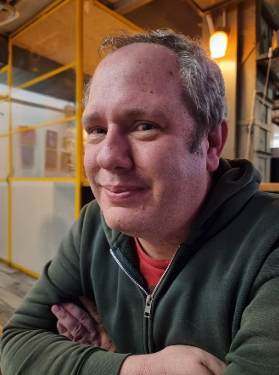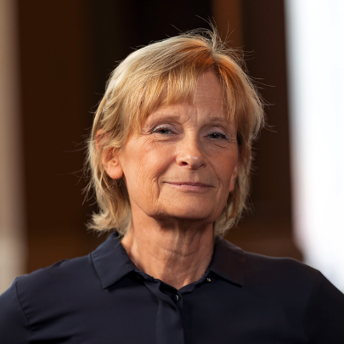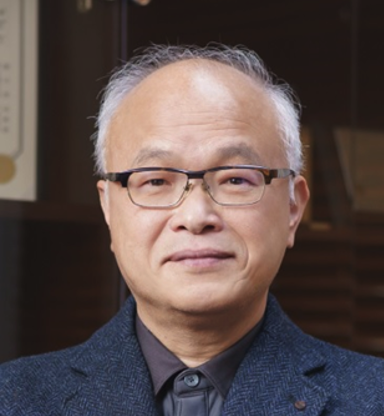Keynote Speakers

Yehu Moran
Research Areas:
The Moran lab is studying the evolution of complex systems while using Cnidaria (sea anemones, corals, hydroids and jellyfish) as model organisms. Among the systems they study a major focus is given to the innate immune system and its molecular evolution in animals.
Brief Biography:
Yehu Moran obtained his B.Sc. (Biology), M.Sc. (Biochemistry) and Ph.D. (Molecular Evolution) from Tel Aviv University, Israel. In 2010 he joined the University of Vienna, Austria, as a postdoctoral fellow and since 2014 he is a faculty member at The Hebrew University of Jerusalem, Israel. He is currently heading the Department of Ecology, Evolution and Behavior of this university.
Personal webpage link: https://www.yehumoran.com/

Irene Söderhäll
Research Areas:
I have worked with hematopoiesis in crustaceans and discovered the cytokine-like Astakine which is directly involved in hemocyte differentiation. Further the function of different hemocyte types have been characterized in detail and the discovery that some hemocytes can migrate to the brain and form neurons is an interesting discovery. Single-cell RNA sequencing of hematopoietic cells and hemocytes has shown that the composition of the hemocyte population is more complex than previously appreciated, and we have ongoing studies where we decipher the mechanism behind differentiation of hematopoietic cells, as well as characterizing the different hemocyte types in more detail.
Brief Biography:
I started my PhD studies to make cell cultures of plants (carrots, and potatoes), developed cultures from protoplasts and studied their differentiation and physiology during differentiation in the early 1980-ies. At that time these techniques were very new and the team at Uppsala University was one of the leaders in this field together with researchers at ETH in Switzerland. I made by PhD 1987 at Uppsala University in plant physiology. After a research visit to University College of Wales in Swansea working with insects, I returned to Uppsala University to continue working with crustacean hematopoiesis and immunity. I started to make cell cultures of the hematopoietic stem cells from a crustacean and managed to get the cells to proliferate in vitro. This led to the discovery of the cytokine astakine, and further how this cytokine interacts with the crosslinking enzyme tranglutaminase to regulate cell proliferation and release in the hematopoietic tissue. I have supervised ca 10 students to their PhD and supervised about 35 post-docs, researchers and PhD students from Thailand, South Korea and China. Some of my external duties are to be on the Editorial board of Dev. Comp. Immunology and J. Invertebrate Pathology. I had an appointment as Head of Department for nine years, 2011 to 2020.
Personal webpage link: https://www.uu.se/en/department/organismal-biology/research/physiology-and-environmental-toxicology/research-groups/soderhall-lab

Jae-Seong Lee
Research Areas:
Host-microbiota interaction, environmental epigenetics, hypoxia, ocean and freshwater acidification, elevated temperature, microplastic
Brief Biography:
Professor Jae-Seong Lee was born in 1963 and graduated from Hanyang University (BSc, MSc, and PhD), South Korea, in 1994, and Nagasaki University, Japan, in 2011. He published more than 500 SCIE papers and served as an editor or editorial board member for Aquatic Toxicology, Comparative Biochemistry and Physiology, Marine Environmental Research, Journal of Environmental Sciences, Science of the Total Environment, and Marine Life Science & Technology. He is eager to collaborate with individuals who share his enthusiasm for the above research areas.
Personal webpage link: https://scholar.google.com/citations?user=hLUaA1gAAAAJ&hl=en

Carolina Tafalla
Research Areas:
Fish B cell responses; immunoglobulins; optimization of novel fish vaccines; adjuvants; oral vaccination; mucosal immunity; chemokines; viral infections of fish
Brief Biography:
Dr. Carolina Tafalla has more than 25 years of experience in the field of fish virology and immunology. She obtained her doctoral degree in Biology in 2000 from the Universidad de Santiago de Compostela. In 2002, she was granted a Marie Curie Individual Fellowship to work at the Centre de Recherche de Jouy-en-Josas (INRA, France). In 2003, she returned to Spain with a Ramón y Cajal contract and started the “Fish Immunology and Pathology” group at CISA-INIA-CSIC. This year the group has moved to the Biotechnology Department of INIA-CSIC. She has published more than 140 papers as well as 10 book chapters. She has also directed 6 doctoral thesis and presented 4 patents. Carolina Tafalla has been the principal investigator of several National and European projects. Among them an ERC Starting grant and an ERC Consolidator Grant to work on fish B lymphocytes. Currently, she is a member of the Agricultural Sciences Committee at CSIC. She is member of the editorial board of several prestigious international journals and since the 1st December 2023, she is Editor-in-Chief for Fish & Shellfish Immunology.
Personal webpage link: https://www.csic.es/es/investigacion/grupos-de-investigacion/grupo-investigacion-en-inmunologia-y-patologia-de-los-peces
